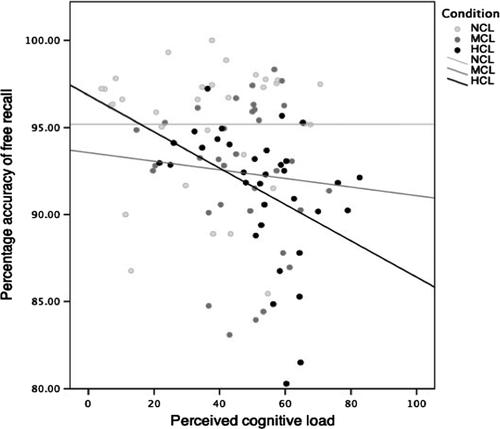The effects of cognitive load during an investigative interviewing task on mock interviewers’ recall of information
Abstract
Purpose
Although investigative interviewers receive training in interviewing techniques, they often fail to comply with recommended practices. Interviewers are required to actively listen, accurately remember information, think of questions to ask, make judgements, and seek clarification, whilst conducting interviews with witnesses, victims, or suspects. The current study examined the impact of increased cognitive load on mock interviewers’ recall of a witness’s account.
Method
Participants took the role of an investigative interviewer in one of three conditions, high cognitive load (HCL), moderate cognitive load (MCL), or no cognitive load (NCL). Participants watched a video-recorded free narrative of a child witness during which they followed condition-relevant task instructions. Each participant rated their perceived cognitive load during their task and then recalled (free and cued recall) the content of the witness’s account.
Results
Participants in the HCL and MCL conditions perceived higher cognitive load and demonstrated poorer performance on the free recall task than those in the NCL condition. Participants in the HCL condition demonstrated poorer performance on the cued recall task compared to participants in the NCL condition.
Conclusions
The cognitive demands required to complete an investigative interview task led to an increased perceived cognitive load and had a negative impact on recall performance for mock interviewers. Accurately recalling what has been reported by a witness is vital during an investigation. Inaccurate recall can impact on interviewers’ questioning and their compliance with recommended interviewing practices. Developing and practising interview techniques may help interviewers to better cope with the high cognitive demands of investigative interviewing.


 求助内容:
求助内容: 应助结果提醒方式:
应助结果提醒方式:


